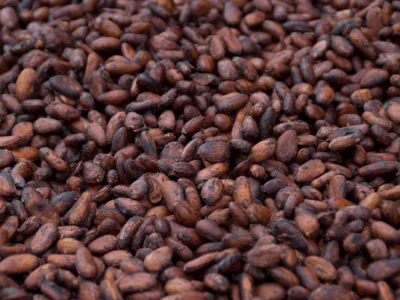President Nana Akufo-Addo declared 2019 the Year of Return for the Ghanaian Diaspora. How do you interact with the Diaspora Affairs Office created by the President to, among other things, attract investments from the Ghanaian Diaspora?
GIPC and the Office of the Diaspora both work under the auspices of the Presidency. We have been partners in the events they have organised, to guarantee their success. Historically, I have had a close working relationship with the Diaspora officials who are now in charge of the Secretariat. I hosted them in my office before 2017 and took part in the organisation of their committees and programmes.
The Diaspora of any country comes with very powerful assets: they bring capital, know-how and technology, as well as best practices and experience. The world has always been changed by people crossing seas, allowing for intercultural exchanges. Our Diaspora is a very powerful medium.
Official remittances amount to an estimated US$3 billion a year. With informal remittances, the figure goes up to $5 billion. It is a significant source of capital.
Have you seen an increase in Diaspora-related investments so far in 2019 and what do you expect in the next few years?
It is a bit early to tell. Many people of African descent have come to Ghana thanks to the Year of Return. They may not bring direct investment at first but they generate revenues related to food, hotel accommodation and activities. We expect this to translate into positive direct investment very soon.
Big investors have shown interest in the hospitality and agricultural sectors as well as the arts and culture sector and the film industry.
Who are the biggest foreign investors in Ghana country-wise? What industries attract the highest investment?
China ranks first in terms of foreign investments in Ghana, with participations across various sectors. Recently the Chinese have focused on the manufacturing and agro-processing industries. Some of these investments have plateaued but we have received a significant number of new enquiries, which I believe will translate into direct investments.
What are the main incentives for investors in specific industries and regions for the next few years?
Incentives are locational and industry specific. Agro-processing companies located outside regional capitals pay a corporate tax of 20%; companies up north attract rates from 5%-15%. Other incentives include guarantees against expropriation, tax and import duty exemptions on plant and equipment; guaranteed transfer of funds, and granting of work permits.
WE BELIEVE THAT UNDER THE CURRENT GOVERNMENT, WHICH PROPOSES GHANA BEYOND AID, THE PHILOSOPHICAL BASIS FOR AFRICA’S DEVELOPMENT HAS BEEN SET
In practice those incentives do not always apply.What programmes have you initiated to implement these regulations?
We engage with the Ghana Revenue Authority and the Ministry of Finance to come to an agreement as to how incentives work. We work together to make sure that companies entitled to incentives do receive them. We are discussing the creation of incentives for direct investors who help us achieve Sustainable Development Goals (SDGs) and for those who partner with Ghanaians.
One of GIPC’s responsibilities is to identify specific projects and prepare project profiles on investments and joint venture opportunities in Ghana and attract interested investors for participation in those projects. Which investment opportunities would you like to showcase to potential investors for 2020?
Among many opportunities, let me highlight a major project in the infrastructure sector. The Accra Marine Drive Project plans to develop about 240 acres of Accra’s coastline. It will become a hub for tourist activities in Ghana, featuring hotels, conference and entertainment facilities, residential properties, offices and shopping malls.
The second project I would like to highlight is the West Africa Film Institute, which will include a world-class film theatre and state-of-the-art movie studios. We also plan to redevelop the Trade Fair Centre film theatre.
Foreign investors in Ghana have met challenges such as the high cost of borrowing locally, with Libor at 2%, while country risk and commercial margins push borrowing rates upwards to 7%-10%. Another point raised by investors is the sudden change in fiscal and legal regulations, as was the case with the local content policy in public contracts. How are you addressing these issues to reassure investors?
For investors, we have a mutually beneficial platform on which investments can be made. But we also believe in sustainability. When we feel policies do not favour sustainability, we review them. In the past, companies have been known to obtain incentives unlawfully so we reviewed the rules. We obviously gave the incentives back to those who legitimately deserved them.
The government is very much aware that the cost of borrowing is too high. But this is a consequence of the economic situation as a whole. At the moment, we have a semblance of macroeconomic stability. This should trigger a review of interest rates.
Before this government took office, interest rates stood between 30 and 35%. Today the government paper, which is an indicator of rates on the market, is at 16%. The economy is showing dynamism and the Cost of doing Business is being reviewed. Inflation this year dropped to 7.8% [year on year inflation registered at 7.8% in August 2019, according to the Ghana Statistical Service]. In 2016 it was at 15.4%. These figures are positive indications that we are on the right track.
In addition to that, the government is working on better debt management, in a bid to reprofile the outstanding debt and stretch maturities to ease off pressure.
Can you tell us about the One District, One Factory programme?
The One District, One Factory programme aims to set up factories, processing units or businesses that add value to raw materials in each of the 260 districts nationwide. It is a job creation mechanism but it also serves as a strategy to open up our industry to the sub-regions. We are bordered by three francophone countries. The establishment of one factory brings about jobs as well as a number of opportunities. Establishing 260 factories will have a major impact on the economy. It will also strengthen the government’s policy of adding value to raw materials before exporting them. This in turn will create higher-paid jobs for young people who have just graduated from Ghana’s free secondary high-school system.
Your site mentions specific incentives in manufacturing, export trading and portfolio investments. Is this part of the current policy?
Strictly speaking, GIPC handles investment capital, foreign direct investment and business investment. However, we work with the Ministry of Finance and the Ministry of Trade and Industry to define incentives and the sectors that will benefit from them. While this is a trade policy, which depends on the Ministry of Trade and Industry, we are involved with the decision process because we raise investments. We are preparing to use a methodology which tests the viability of each reform before we implement it.
What is your message to potential investors?
Ghana is in the middle of the world. As Ghana becomes the headquarters of the African Continental Free Trade Area (AfCFTA), we are in pole position to spearhead trade as well as investment in Africa’s industries. We are proud to hold this position and we believe that under the current government, which proposes Ghana Beyond Aid, the philosophical basis for Africa’s development has been set.














Comments